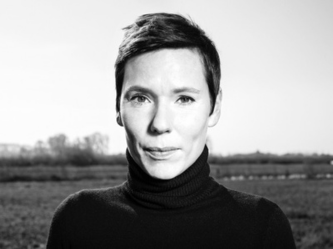Annelies Verbeke: “I love literary translators”
In May, Flanders Literature’s very first Translators Week took place. Ten new translators from Dutch had the chance to get to know Flemish literature. A presentation by Annelies Verbeke was on the programme. “I love literary translators,” was how she began her captivating and humorous talk about her experiences with translators.
The initiative comes from the translator

The author likes best to be in direct contact with her translators, but that isn’t always down to her. “It was only when my work was translated for the first time that I understood how much the author’s involvement with the translation depends on the translator.”
Annelies Verbeke talked about all kinds of instructive, and sometimes extraordinary, experiences with her translators, from translators who presented her with entire dossiers of questions about her work to translators she didn’t even know were working on one of her books.
If there’s no contact between translator and author during the making of a translation, that doesn’t necessarily mean it will end in disaster. I deplored the fact that the Belgian translator who translated my novel ‘Thirty Days’ into French hadn’t ever asked me anything, but when Le Monde praised the style of her work, I forgave her.
Translators as ambassadors of Babel
“I have to mention Danish translator Naja Møllmann-Ibsen here too. When it comes to involving the author, she outstripped everyone. I kept receiving files from her, with pages and pages of questions or doubts; several times I even had to admit that she’d spotted idiosyncratic content or a lapse in spelling.”
Annelies Verbeke also expressed her gratitude to her translators for helping her to build a broader readership. “Literary translators can function as ambassadors of Babel. As seers in a country of the blind, they can personally make a difference for literary work and so open up cultures to each other. Authors and readers can’t ever be grateful enough for that,” she says.
She also referred to several of the challenges facing the profession in Europe, including underappreciation, translation fatigue, the importance of subsidies, the dominant role of British and American publishing houses and more. Yet she ended her talk by describing the positive evolution seen in the Dutch language area over recent decades.
Never were so many Dutch-language authors visible outside their national borders and never have we seen so many translations available in our bookshops. Where translation policy is concerned, our language area is setting an example to Europe.